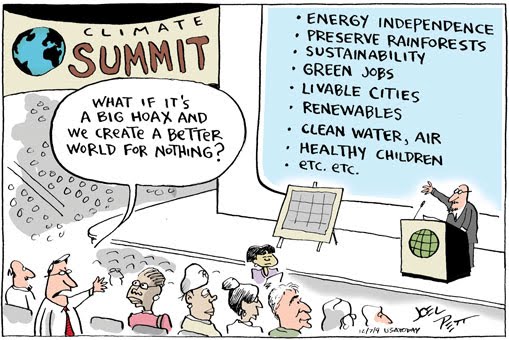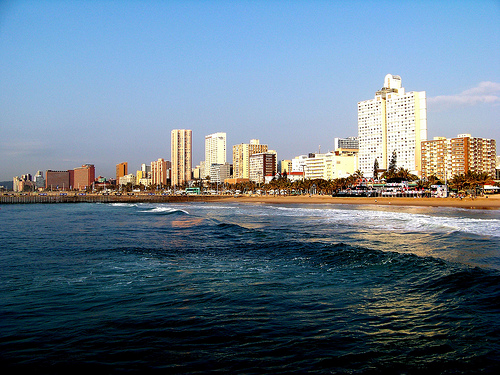Dickinson to Durban » Entries tagged with "South Africa"
Get Local Governments Involved!
Esther Babson ’13 Throughout history, the key to making an issue a priority of the people and government, is by mainstreaming the issue. This can be incredibly difficult, especially when the issue is considered a “threat” to growth and economic development in a country. Unfortunately many people still see climate change in this way. Due to this perception, of efforts to deal with climate change as economically damaging, trying to bring change in government policies for climate change is even more of a struggle. Durban, South Africa has actually made some impressive progress in mainstreaming climate change which will hopefully lead to decision makers realizing the importance of this issue. The article “Thinking globally, action locally-institutionalizing climate change at the local government level in Durban, South Africa” by Debra Roberts hones in … Read entire article »
Filed under: Climate Change, Environmental Politics
Understanding leads to action.

By: Emily Bowie ’14 The outcomes of South Africa’s Cities for Climate Protection campaign (CCP) which was initiated in 2000 and ended in 2006 showed great results for both the cities’ development and for climate change mitigation efforts. Benefits of the campaign included a detailed energy and emissions inventory which is useful in gauging where improvements can be made. Through the results of this inventory a buildings energy efficiency pilot project was launched, part of this project … Read entire article »
Filed under: Climate Change, Environmental Politics
Durban: Where Global Meets Local

Claire Tighe ’13 Durban, South Africa is the host for the 2011 UNFCCC 17th Conference of the Parties. As a large urban center and coastal city, has Durban taken any actions towards mitigation or adaptation to climate change? Debra Roberts addresses this question in her report, “Thinking globally, acting locally – institutionalizing climate change at the local government level in Durban, South Africa.” As of late, “reasonable progress has been made in Durban in mainstreaming climate change … Read entire article »
Filed under: Climate Change, Environmental Politics
Did violence strengthen the movement?
1. Explain the reasons behind the creating of Umkhonto we Sizwe (MK). Do you think adopting violence as a method strengthened or weakened the anti-apartheid movement? Umkhoto we Sizwe (MK) was formed after fifty years of non-violent resistance by the ANC. In those fifty years, non-violent resistance brought a sense of unity to the masses, but it had not managed to instigate changes in the government. After fifty years people were tired of having their peaceful resistance met with harsh and unnecessary violence. When MK is formed it is to take the resistance to the next level. Non-violent resistance has united the African people, but the movement was starting to fall apart as people became more frustrated with the lack of results. Fifty years later and they are still fighting the … Read entire article »
Filed under: Mosaic Action, Summer Reading Responses
Recent Comments